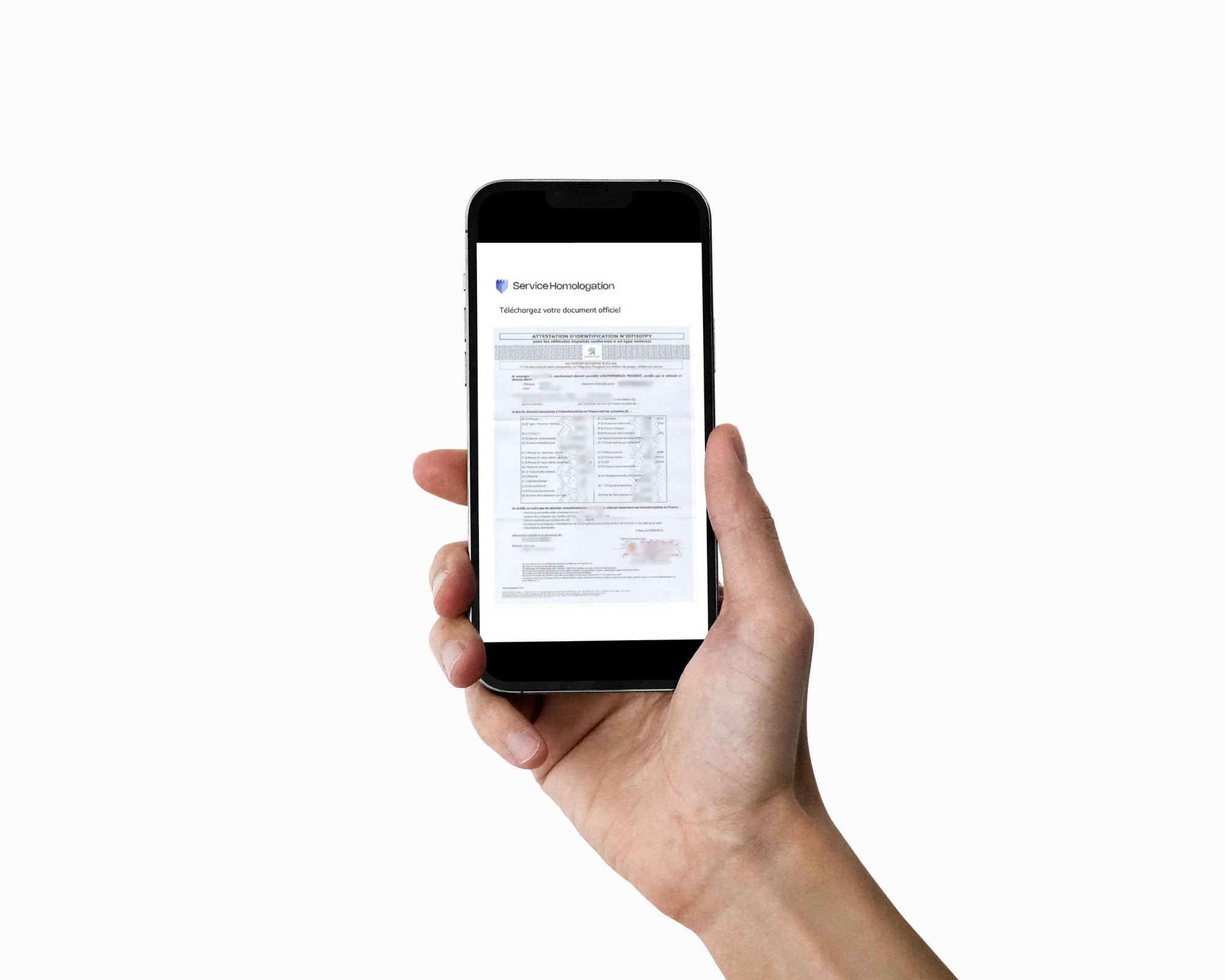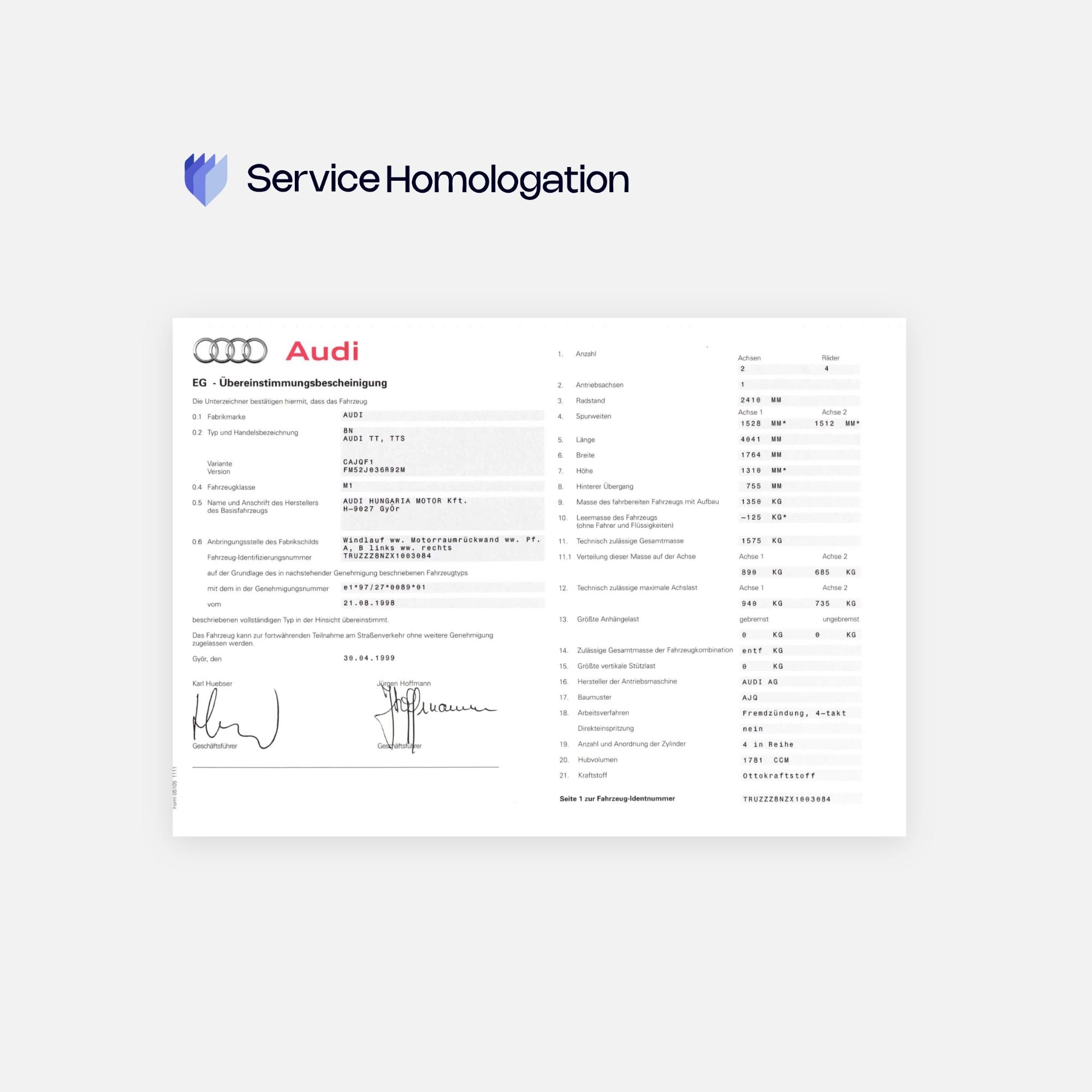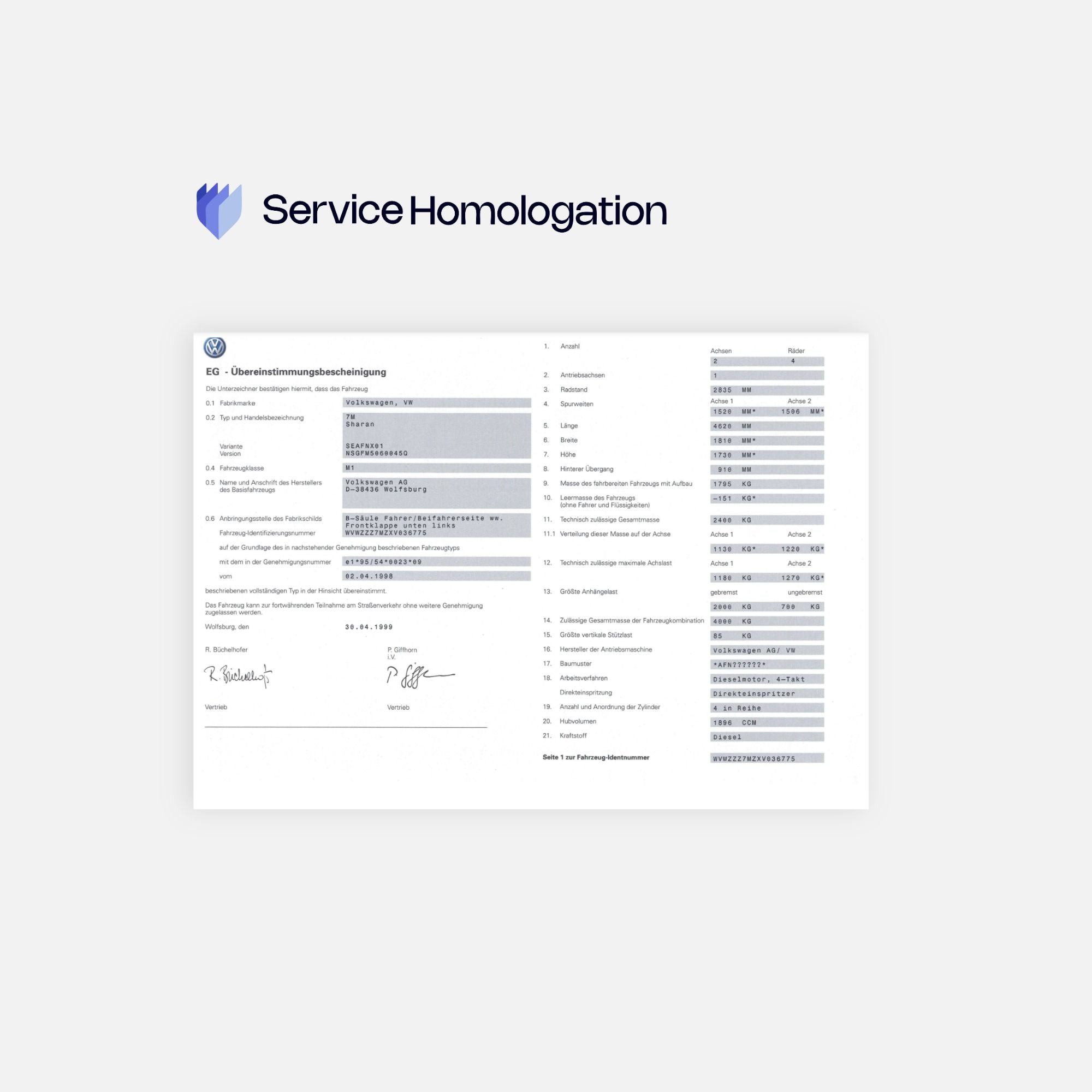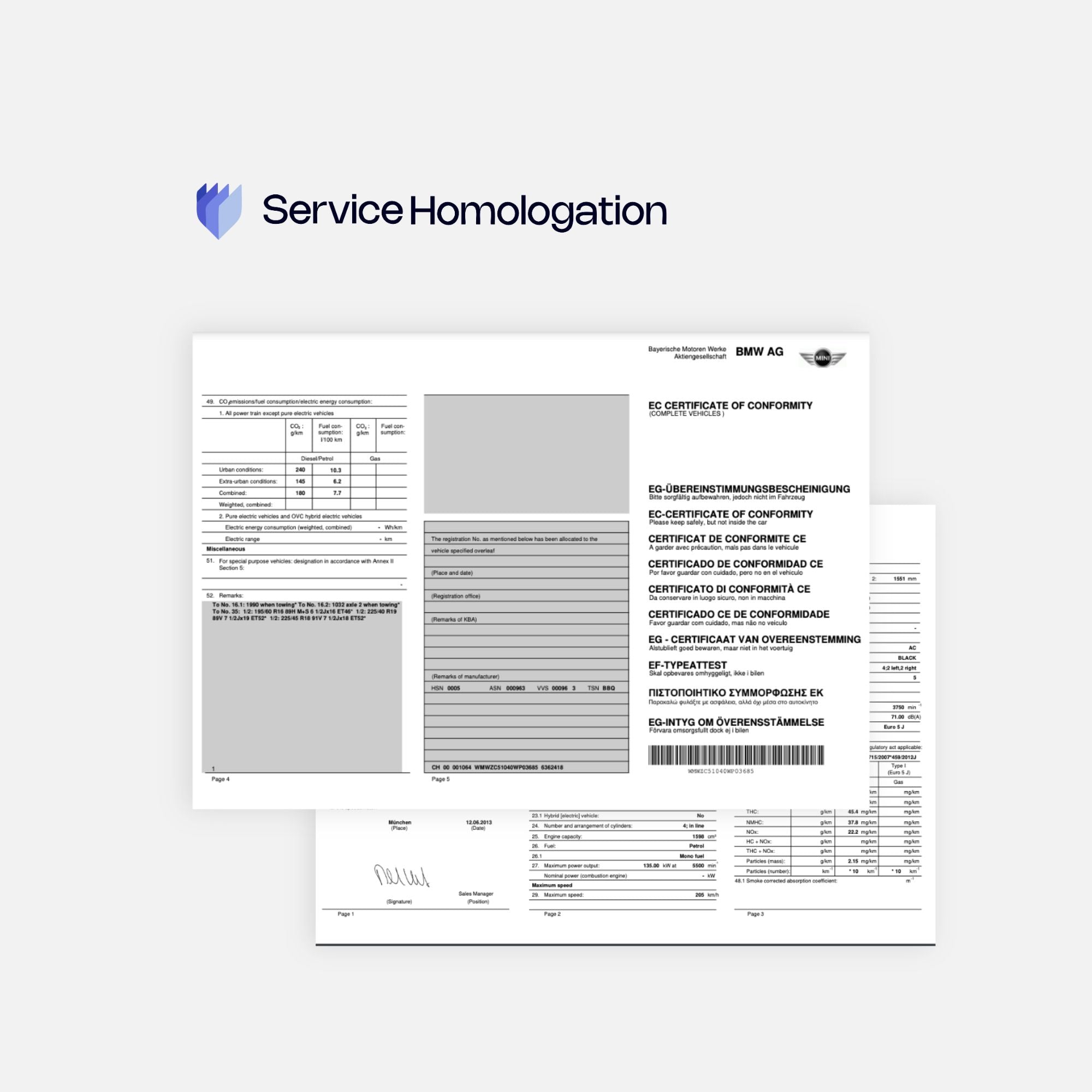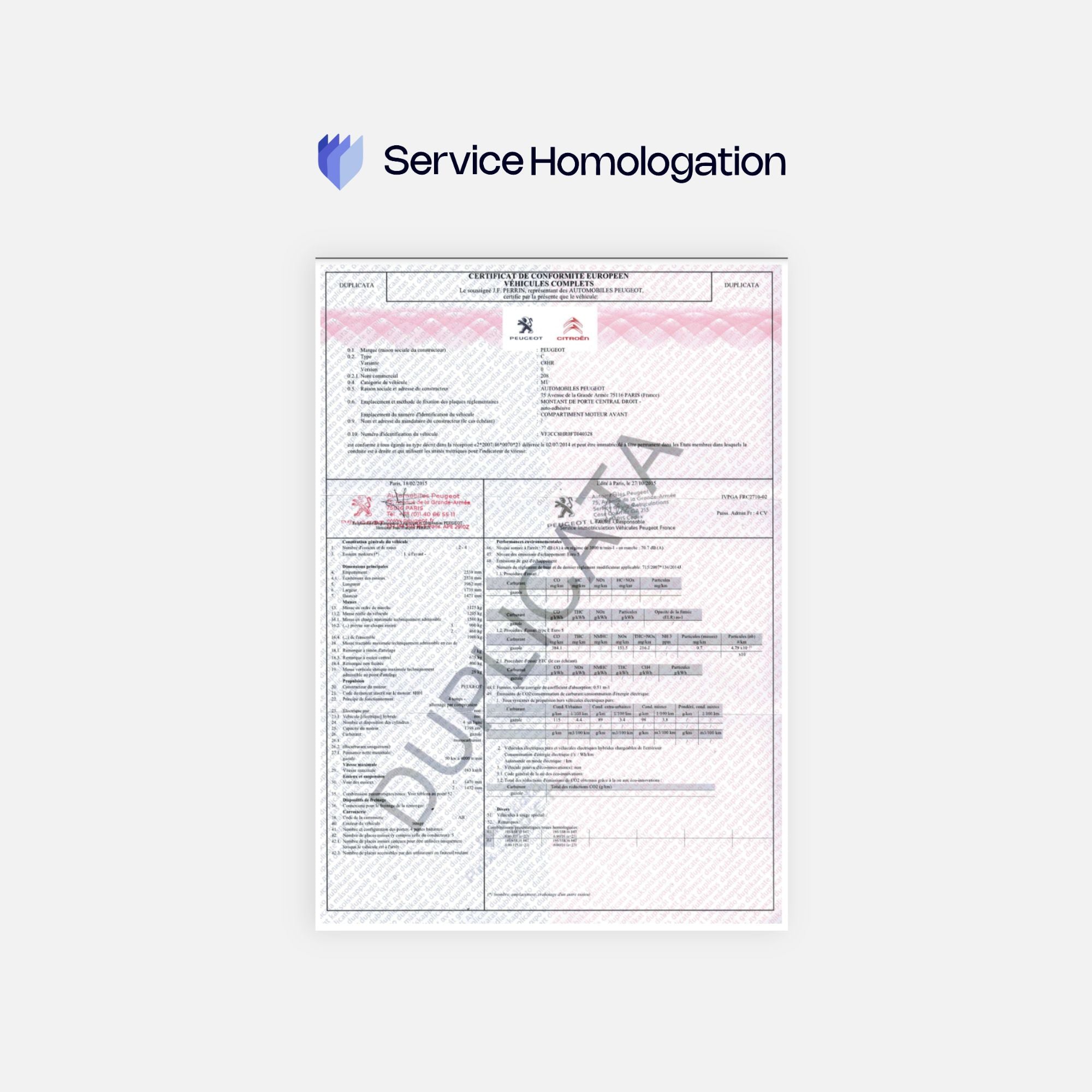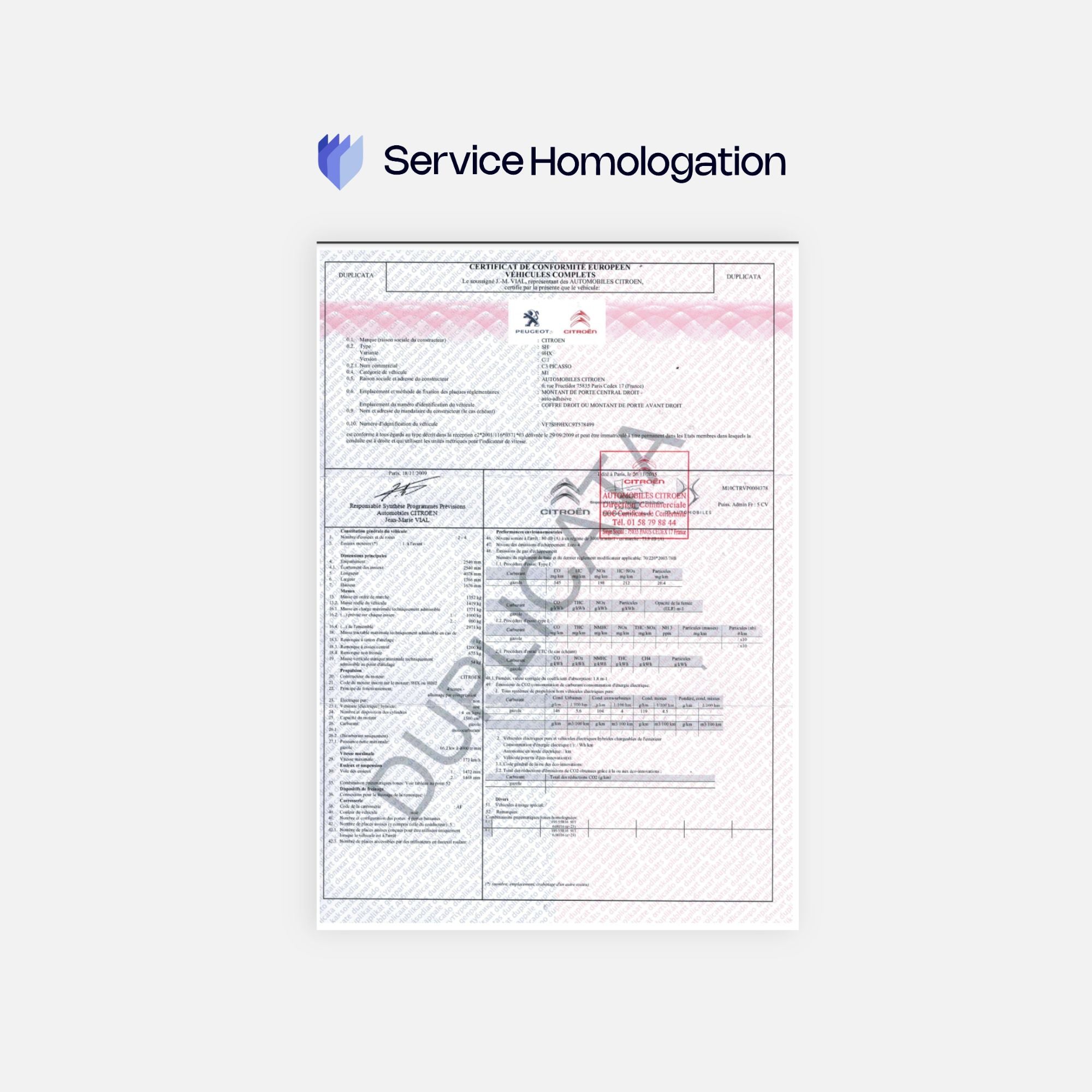When you're considering purchasing an imported vehicle or registering a foreign car in France, the certificate of conformity becomes an essential document. If you're looking for reliable information on this essential document, particularly for Peugeot vehicles, it's crucial to understand its validity period and its implications.
What is a certificate of conformity and how long is it valid?
The Certificate of Conformity , often abbreviated COC (Certificate of Conformity), is an official document issued by the car manufacturer certifying that your vehicle complies with all current European standards. This document is essential for registering an imported vehicle or for obtaining a registration card in France.
Regarding its validity, it is important to note that a certificate of conformity does not have an expiration date per se. Once issued by the car manufacturer, it remains valid indefinitely for the vehicle in question, as long as it has not undergone substantial modifications affecting its compliance with the initial standards.
However, this lack of expiration does not mean that the document can be used in all circumstances and indefinitely. Several factors can affect the use of a COC in certain administrative procedures.
Factors influencing the practical validity of a certificate of conformity
Even though theoretically the COC does not expire, certain elements can limit its effective use:
Vehicle modifications : If your vehicle undergoes significant modifications (engine, chassis, safety systems), the initial certificate no longer reflects the vehicle's actual condition and loses its validity. In this case, a new homologation becomes necessary.
Changing regulations : Environmental and safety standards are constantly evolving. An older vehicle, even with a valid COC, may no longer comply with current requirements for first registration in France. This is particularly true for emissions standards such as Euro 5 or Euro 6.
Administrative deadlines : Some administrations may require that the certificate be recently issued for certain procedures. For example, when importing a new vehicle, the COC may be required to be less than three months old.
Original and duplicate certificate of conformity: what are the differences?
The original COC is the document initially provided by the manufacturer when the vehicle was sold. If you have misplaced it, you can request a duplicate, but be aware that this has the same legal validity as the original, provided it is issued by the manufacturer or an authorized body.
Industry experts like Bureau Veritas and TÜV confirm that official duplicates are fully valid for administrative procedures. The price of a duplicate certificate of conformity varies depending on the manufacturer and may be a necessary investment to facilitate your procedures.
Procedure for using a certificate of conformity
To effectively use your COC when registering your vehicle in France, here are the recommended steps:
1. Check the integrity of the document : Make sure the certificate is not damaged and that all information is legible.
2. Check the correspondence : Check that the serial numbers, type and all technical characteristics mentioned on the COC correspond exactly to your vehicle.
3. Put together a complete file : Attach the certificate to the other documents required for registration (purchase invoice, proof of identity, proof of address, etc.).
4. Present the whole thing to ANTS or to an authorized professional to carry out the registration procedures.
Current trends in certificates of conformity
The automotive homologation sector is currently undergoing significant developments:
The dematerialization of procedures is progressing, with more and more manufacturers offering digital certificates, which are more difficult to falsify and easier to keep.
The increased environmental requirements have a direct impact on vehicle compliance, making some older models difficult to register in major cities subject to traffic restrictions.
Quality managers at car manufacturers stress the growing importance of these documents in a context of increased European mobility and an expanding cross-border used car market.
Conclusion: The importance of a valid certificate of conformity
A certificate of conformity is a document with no fixed expiration date, but its practical use may be limited by various factors. To avoid any problems during your administrative procedures, particularly when registering an imported Peugeot vehicle, always make sure you have an up-to-date document that fully reflects the current condition of your vehicle.
If you have any doubts about the validity of your certificate, don't hesitate to consult a certification professional who can guide you toward the solution best suited to your situation. Investing in a compliant certificate will save you a lot of administrative hassle and allow you to use your vehicle legally in France.
